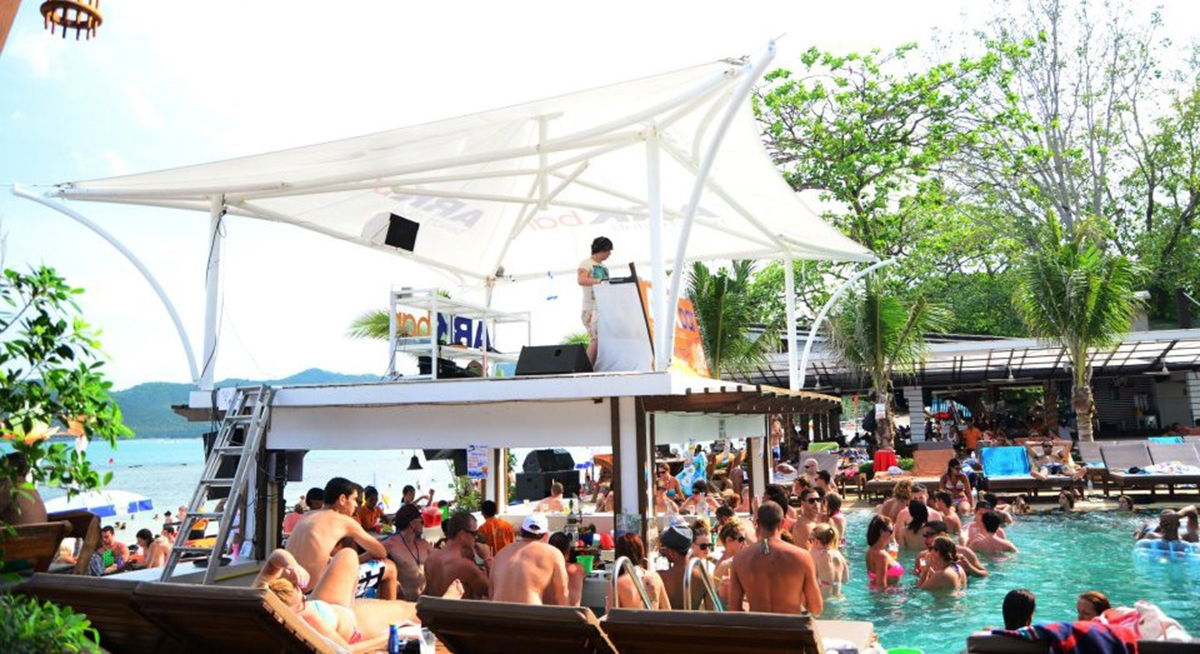Table of Contents
The summer months bring family vacations, outings, and plentiful time spent on the beach. Many gatherings on the beach most certainly involve sun, alcohol, and a fun time. The prolonged exposure to the intense sunlight, however, increases the risk for the development of skin cancer, melanoma in particular, due to harmful UV radiation. The U.S. Centers of Disease Control and Prevention (CDC) report that cancer is the second leading cause of death, claiming over 576,000 individuals annually.

Melanoma develops primarily as a result of DNA damage in the cells called melanocytes. Melanocytes are the cells that are responsible for producing the darkened pigment in the skin, which gives the body a “tanned” appearance. While many individuals are aware of the potential dangers of the sun and are informed about the basics of sunblock protection, very few know about the additional dangers of combining the sunbathing and alcohol consumption. This is not particularly surprising, since the connection was only revealed by the latest research studies.
Several major long-term studies have convincingly demonstrated that alcohol and cancer are linked. Below are just a couple of examples of such studies that confirm this statement on large groups of people.
Alcohol and the risk of skin cancer: Women’s Health Study
The Women’s Health Study was a large study involving over 59,000 Caucasian post-menopausal women with the mean age of 63.6 years. This study, which followed-up the participants for 10 years after enrollment, reported that women who consumed at least seven drinks per week were 64 percent more at risk for the development of skin cancer. When the participants were categorized by their preferences for wine or liquor, the risk for skin cancer remained similar. The participants who preferred wine were at 52 percent higher risk for melanoma whereas the individuals who preferred liquors were at 65 percent higher risk, suggesting that regardless of the type of alcohol consumed the skin cancer risk is increased by frequent alcohol intake.
The U.S. Radiologic Technologists Study
The U.S. Radiologic Technologist study enrolled over 68,000 Caucasian individuals, most of whom were female and who began the study cancer-free. The study examined the influence of the lifestyle factors such as smoking and alcohol intake, as well as hormonal and anthropometric factors on the risk of cancer development. The study revealed a clear connection between consumption of alcohol and cancer risk.
See Also: Skin Cancer Melanoma: Symptoms and Treatment Options
In addition, there was a correlation between the amount of alcohol consumed and the risk of developing melanoma.
The link between skin cancer and alcohol is not particularly surprising. After all, the connection between alcohol and other types of cancer is well known. But the fact that this effect can be significantly enhanced by exposure to the UV light came as a bit of surprise.
- Freedman, DM, Sigurdson, A, Doody, MM, Rao, RS, Linet, MS (2003) Risk of melanoma in relation to smoking, alcohol intake, and other factors in a large occupational cohort. Cancer Causes Control, vol 14, issue 9, pp. 847-857
- Kubo, JT, Henderson, MT, Desai, M, Wactawski-Wende, J, Stefanick, ML, Tang, JY (2014) “Alcohol consumption and risk of melanoma and non-melanoma skin cancer in the Women’s Health Initiative”, Cancer Causes & Control, vol. 25, issue 1, pp. 1-10
- Murphy, SL, Xu, J, Kochanek, KD (2012) Deaths: Preliminary Data for 2012, National Vital Statistics Reports, vol. 60, no. 4, pp. 1-51
- Rota, M, Pasquali, E, Bellocco, R, Bagnardi, V, Scotti, L, Islami, F, Negri, E, Boffetta, P, Pelucchi, C, Corrao, G, La Vecchia, C (2014) Alcohol drinking and cutaneous melanoma risk: a systematic review and dose-risk meta-analysis, British Journal of Dermatology, vol. 170, issue 5, pp. 1021-1028.
- Photo courtesy of Ross by Flickr : www.flickr.com/photos/89441501@N08/8136497079
- Photo courtesy of Sea Club Ilhabela by Flickr : www.flickr.com/photos/44282322@N07/4406706840


Your thoughts on this